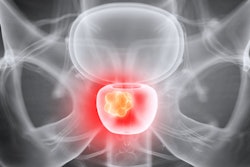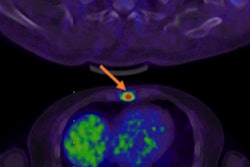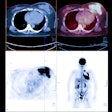Using carbon-11 (C-11) choline PET and multiparametric MRI, Mayo Clinic researchers may have found a way to improve postsurgery treatment of patients with recurrent prostate cancer, according to a study published online in the Journal of Urology.
A combination of the two modalities has allowed researchers for the first time to map patterns of prostate cancer recurrence after surgery and improve the identification of those abnormalities at an average prostate-specific antigen (PSA) score of 2.
Study co-author Dr. Jeffrey Karnes, a urological surgeon at the Mayo Clinic in Rochester, MN, said the challenge with men who have biochemical prostate cancer recurrence is determining where the disease has reactivated, especially when the PSA level is low.
With the help of C-11 choline PET and multiparametric MRI, the researchers found that nearly two-thirds of study participants had recurrence limited to the pelvis, which potentially can be targeted for radiation therapy (Journal of Urology, July 20, 2016).
Most importantly, this type of staging allows physicians to identify areas of recurrent disease that could possibly be treated with radiation or surgery.




















